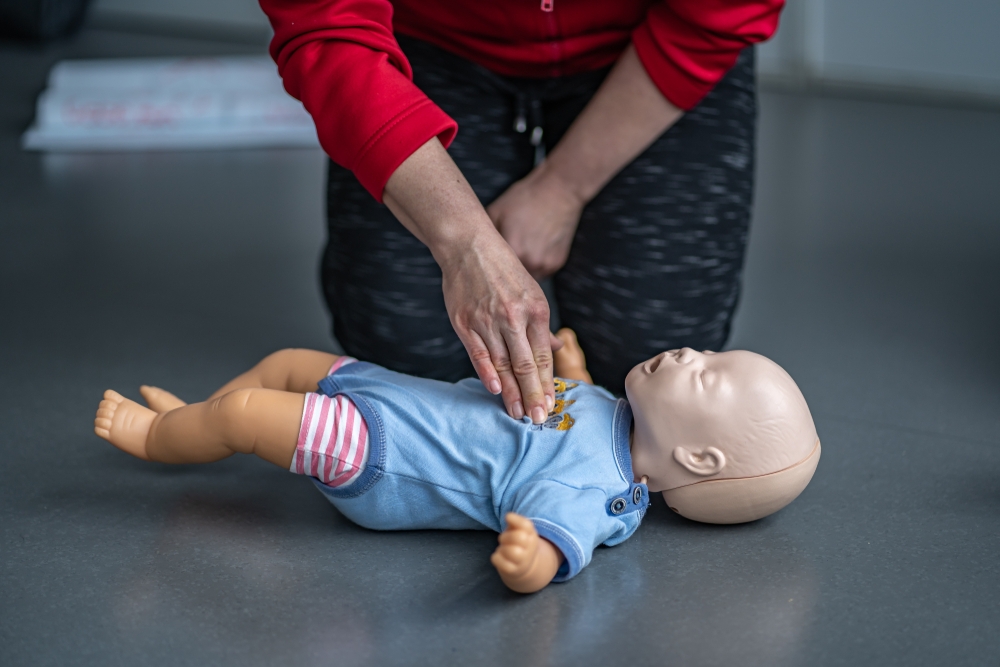In a world filled with unpredictability and potential hazards, paediatric first aid is not just a skill; it's a vital necessity. Children, by their very nature, are prone to accidents and medical emergencies, and having the knowledge and expertise to respond swiftly and effectively is paramount. This comprehensive guide delves deep into the world of paediatric first aid courses, examining the critical importance of this training, the extensive curriculum it encompasses, the hands-on practicality it offers, and the transformation it brings to caregivers' lives.
The Critical Need for Paediatric First Aid
The significance of paediatric first aid training cannot be overstated. It is a skill set that caregivers, parents, teachers, and anyone responsible for children must possess. Here's why it matters:
-
Children are Vulnerable: Children, especially in their early years, are naturally inquisitive and prone to accidents. Their developing bodies and limited communication abilities make them more vulnerable to harm.
-
Timely Response is Imperative: In paediatric emergencies, time is of the essence. The ability to respond promptly and effectively can often be the difference between life and death or a full recovery and lasting consequences.
-
Common Paediatric Emergencies: Caregivers may encounter a wide array of paediatric emergencies, including choking, burns, allergic reactions, seizures, and more. Paediatric first aid equips them to handle these situations with confidence and competence.
The Comprehensive Curriculum - Beyond Basics
A paediatric first aid course extends far beyond basic first aid knowledge. The curriculum is comprehensive, covering critical areas in depth:
-
Cardiopulmonary Resuscitation (CPR) for Children: CPR is a fundamental skill in paediatric first aid. The course teaches caregivers how to perform CPR on infants and children, including the correct techniques and the use of automated external defibrillators (AEDs).
-
Choking and Airway Management: Knowing how to clear a blocked airway and perform the Heimlich maneuver on a child is life-saving. The course ensures caregivers can do this effectively.
-
Wound Care: Proper wound care is vital to prevent infection and promote healing. Caregivers learn how to clean, disinfect, and dress wounds, emphasizing the importance of maintaining a sterile environment.
-
Fractures and Dislocations: The course covers how to stabilize and immobilize fractures or dislocated joints to prevent further injury during transportation to medical care.
-
Allergic Reactions: Recognizing the signs of severe allergic reactions and administering epinephrine when necessary are crucial components of the training.
-
Burns and Scalds: Caregivers learn to assess the severity of burns and scalds, provide immediate first aid, and reduce the risk of infection.
-
Seizures: The course addresses various types of seizures and teaches caregivers how to respond during and after an episode.
-
Infections and Illnesses: Recognizing and responding to common childhood illnesses and infections, such as fevers, respiratory issues, and gastrointestinal problems, are integral parts of the training.
Hands-On Practical Training - Simulating Real-Life Scenarios
Paediatric first aid courses are not just theoretical; they are highly practical. Many courses include simulated scenarios where caregivers apply their knowledge in real-life situations. This hands-on experience is invaluable as it builds confidence and ensures that caregivers can respond effectively when it truly matters.
Certification - Validation of Competence
Upon successful completion of a paediatric first aid course, caregivers receive certification. This documentation serves as a testament to their proficiency in paediatric first aid and CPR. Many employers, particularly those in childcare and educational settings, require this certification as a prerequisite for employment.
Continual Learning - Staying Updated
The field of paediatric first aid is continuously evolving. Guidelines and best practices change over time. Therefore, caregivers must commit to staying updated on the latest advancements and recommendations. Regular refresher courses are essential to reinforce their knowledge and keep their skills sharp.
Impact on Caregivers - Beyond the Classroom
The impact of paediatric first aid training extends far beyond the classroom. Caregivers who undertake these courses undergo a profound transformation in their caregiving abilities and overall confidence.
-
Confidence: Caregivers gain confidence in their ability to handle emergencies. They no longer feel helpless in critical situations but can take decisive action with composure.
-
Empowerment: Paediatric first aid empowers caregivers to be proactive in ensuring children's safety. Whether at home, in a school, or as part of a daycare team, caregivers become the first line of defense in safeguarding children.
-
Peace of Mind: Knowing how to respond effectively in emergencies brings peace of mind. Caregivers no longer live in fear of what might happen; they are prepared and capable of addressing a wide range of situations.
-
Lifesaving Capability: The most significant impact is the potential to save lives. In situations where every moment counts, caregivers with paediatric first aid training can make a critical difference by providing immediate, informed assistance.
-
Improved Care: Beyond emergencies, the knowledge and skills acquired also translate into improved daily care for children. Caregivers can offer better protection and reduce risks, creating a safer environment for the children under their supervision.
Conclusion
Paediatric first aid is not just a course; it's a transformative skill that empowers caregivers to be vigilant, prepared, and capable when it matters most. It's a lifeline for children in times of need, a tool that makes the world a safer place for the little ones we cherish. In a world filled with uncertainties, paediatric first aid is a vital necessity for caregivers, ensuring that they can respond swiftly and effectively to protect and care for the children in their charge.


